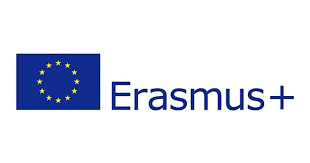HEALTH-LIT aims to enhance the health literacy (HL) of young people (14-29 years old), equipping them with skills to address disinformation about health issues and to promote digital readiness and resilience. The project seeks a systemic impact on youth engagement in Bulgaria, Croatia, Cyprus, Italy, and Lithuania by improving the skills and competences of youth workers and educators.
Activities encompass an online survey of young people in 5 countries; designing an inclusive multilingual health literacy and disinformation program through innovative local and international youth sandboxes (VOYS); peer learning and training of trainers; developing and disseminating e-learning HL resources; engaging youth, youth workers, local stakeholders, and the wider public in mutual learning and awareness-raising through multiplier events and webinars; and project evaluation activities.
The aim of HEALTH-LIT is to provide youth workers, youth activists, and young people with resources and tools to be health literate and to equip them with the necessary skills to tackle disinformation and to find, analyze, and understand health news. These skills are part of the so-called ‘digital health literacy’ as defined by the WHO. The specific objectives are linked to the selected priorities as follows:
- Improving the understanding of HL challenges to youth and developing evidence-based strategies to address them
- Supporting youth workers and activists’ acquisition of digital and HL competences by developing learning resources and
innovative tools using non-formal education
- Increasing HL of young people through informal learning, including them in co-developing the knowledge and practices that promote inclusion and civic engagement
- Engaging young people to take positive action against disinformation via peer-learning and raising awareness of its detrimental effects on health
- Fostering cross-sectoral and cross-cultural collaboration among youth workers, civic activists, and educators from the partner organizations to promote youth health literacy.
Achieving the objectives, we will produce the following results:
- Increased cross-country understanding of the intersections of disinformation and HL through participatory data collection and needs (self)assessment of young people
- Co-created training materials and digital resources enabling the target groups to improve their digital and health literacy and better understand the importance of a cohesive communication strategy while working on health literacy with youth (VOYS events, HeaLinc)
- Implementation of learning, teaching, and training-of-trainer activities for youth workers, youth activists, and educators; by the end of the project, at least 100 persons trained.
- Target groups empowered, and their resilience increased through the provision of associated values, attitudes and behaviors related to disinformation (cross-country information and awareness-raising campaign in social media)
- Through the project, participating organizations and youth activists improve their capacity to integrate HL in youth activities (modular HL program, Playbook with resources for youth workers, guidance on developing inclusive, gendersensitive learning opportunities)
- Through the project, participating organizations and target groups increase their cross-cultural exchange and access to virtual spaces for continued peer learning (training of trainers, webinars, multiplier events)
- Promoted social cohesion and active citizenship, defending the European common values of right to health, inclusiveness, human dignity, and diversity.
Partners:
Centre for peace, nonviolence and human rights—Osijek
Future Needs: Cipar
Bureau for Integration and Social Innovations—Bugarska
FORMA.AZIONE SRL – Italija
Mano Europa – Litva
Duration: 24 months
